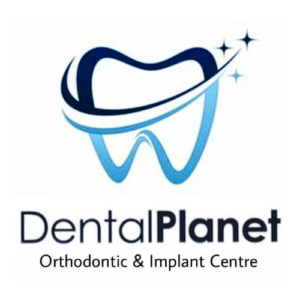



Many people suffering from gum diseases often ask, “What is periodontology?” This specialized field of dentistry focuses on the health and treatment of the tissues surrounding the teeth.
Periodontology deals primarily with gum disease, which refers to inflammation caused by various factors. Some misconceptions exist regarding this field, such as “Does periodontology perform implants?” or “Does it involve dental fillers?” However, periodontology is strictly concerned with the diagnosis, prevention, and treatment of gum-related issues.
The most common gum disease is gingivitis, which is characterized by gum inflammation due to poor oral hygiene, irregular brushing, and neglecting flossing. Symptoms include redness, swelling, and bleeding gums. Proper diagnosis and treatment are essential for eliminating gingivitis and preventing it from worsening.
If gingivitis is left untreated, it can progress into a more severe condition known as periodontitis. This leads to deep pockets forming between the gums and teeth, potentially resulting in bone loss.
The major gum diseases include:
✔ Chronic periodontitis
✔ Gum recession
✔ Gum enlargement
✔ Necrotizing gum diseases
Gum pockets are spaces between the teeth and gums that can trap bacteria, leading to infections. Additionally, gum recession exposes the tooth roots, making them more sensitive to external factors. This condition can be influenced by brushing technique, genetic factors, and aging.
Several factors contribute to gum diseases, including:
✔ Heavy smoking
✔ Genetic predisposition
✔ Hormonal changes (pregnancy, menopause)
✔ Systemic conditions such as diabetes and stress
✔ Poor oral hygiene and dietary habits
✔ Certain medications that affect gum health
Since these factors have been well established in dentistry, following a periodontist’s advice can help prevent and manage gum diseases effectively.
The symptoms of gum diseases depend on their severity and progression. In the early stages, patients may notice:
✔ Redness, swelling, and bleeding gums
✔ Bad breath (halitosis)
✔ Gum recession
✔ Loose teeth
As the condition advances, discharge between the teeth and gums may occur, along with changes in the way the teeth fit together when biting. One of the most noticeable signs is persistent bleeding gums.
Treating gum diseases (periodontal treatment) often does not require surgery, especially when detected early. The treatment plan varies based on the severity of the disease and the patient’s overall health.
Non-Surgical Treatments
✔ Professional Dental Cleaning (Scaling)
✔ Antibiotic Therapy
Surgical Treatments (For Advanced Gum Disease)
✔ Subgingival Curettage & Gingivectomy – Removes infected tissue and reshapes the gums
✔ Pocket Reduction Surgery – Cleans deep gum pockets and reattaches gum tissue
✔ Root Surface Planing – Smoothens tooth roots to prevent bacteria buildup
The duration of periodontal treatment depends on the extent of gum disease and the selected procedure. Regular follow-ups ensure long-term success.
Taking simple yet effective steps can help maintain healthy gums and teeth:
✔ Regular Dental Checkups – Early detection prevents serious gum problems
✔ Proper Oral Hygiene – Brush twice daily, floss regularly, and use mouthwash
✔ Healthy Diet – A well-balanced diet supports gum health
✔ Quitting Smoking – Smoking is a major risk factor for gum disease
By incorporating these preventative measures into daily life, gum diseases can be significantly reduced. However, if symptoms arise, seeking immediate professional help is crucial.
At Dental Planet, we specialize in comprehensive periodontal care, ensuring healthy gums and long-lasting oral health. For appointments, consultations, and treatment costs, contact Dental Planet today!
Dental Planet was founded by established specialist dentists in different branches of dentistry, hygienists, nurses and with one of the best technical team in the world with decades of experience, working in a very high standard laboratory, equipped with the latest technology, high-quality instruments and materials.